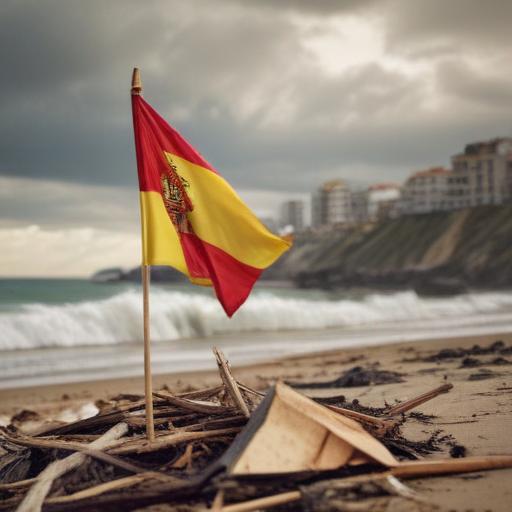Spain’s tourism sector is facing significant challenges following a powerful 5.3-magnitude earthquake that struck off the Cabo de Gata coast near Almeria. This seismic event occurred less than 24 hours after torrential rain and severe storms swept through southern regions, including the Costa del Sol and Alicante, adding to the uncertainty for travelers planning their holidays.
The earthquake generated strong tremors felt in major tourist destinations, with initial reports indicating damage at Almeria Airport, where parts of the roof collapsed, forcing airport staff and travelers to confront debris falling from above. Fortunately, there have been no reports of injuries, but the incident highlights the vulnerability of Spain’s transport infrastructure to natural disasters.
In anticipation of this earthquake, many areas were already grappling with the aftermath of flooding that left roads submerged and infrastructure strained. The combination of severe weather and seismic activity has created a precarious situation for the tourism industry—particularly since the summer travel season is now underway and a large influx of visitors is expected.
Officials are now assessing the implications of these events on travel plans, with concerns about potential flight delays and hotel cancellations looming over the tourism industry. The influx of additional rain alerts across regions such as Barcelona, Huesca, Teruel, Zaragoza, Girona, Lleida, Tarragona, and Castellón may further complicate recovery efforts.
Authorities have recorded multiple aftershocks since the initial quake, continuing to stir anxiety among residents and tourists alike. The tourism sector’s leaders are therefore engaged in urgent communication efforts, assuring travelers of their safety and the stability of the region’s attractions.
As Spain’s tourism industry remains a vital economic driver—accounting for a substantial portion of the nation’s GDP—the resilience shown in the past can serve as a beacon of hope during this trying time. Historically, Spain has demonstrated an ability to rebound from challenges, and the current crisis may prompt enhanced crisis management strategies that could strengthen the resilience of its tourism sector moving forward.
While the immediate aftermath is filled with uncertainties, Spain’s allure as a destination remains strong. As clean-up efforts progress, the country aims to assure travelers that it remains a safe, welcoming location for those seeking sun-drenched beaches and cultural treasures. The situation also presents an opportunity for stakeholders to explore ways to improve infrastructure and preparedness for future natural events, which could ultimately foster greater visitor confidence in the long run.
